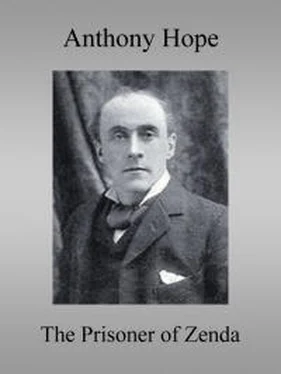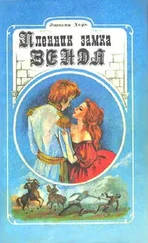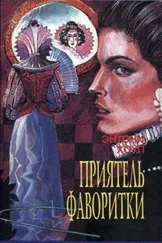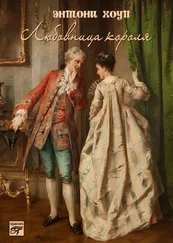Энтони Хоуп - The Prisoner of Zenda
Здесь есть возможность читать онлайн «Энтони Хоуп - The Prisoner of Zenda» — ознакомительный отрывок электронной книги совершенно бесплатно, а после прочтения отрывка купить полную версию. В некоторых случаях можно слушать аудио, скачать через торрент в формате fb2 и присутствует краткое содержание. Жанр: Прочие приключения, на английском языке. Описание произведения, (предисловие) а так же отзывы посетителей доступны на портале библиотеки ЛибКат.
- Название:The Prisoner of Zenda
- Автор:
- Жанр:
- Год:неизвестен
- ISBN:нет данных
- Рейтинг книги:5 / 5. Голосов: 1
-
Избранное:Добавить в избранное
- Отзывы:
-
Ваша оценка:
- 100
- 1
- 2
- 3
- 4
- 5
The Prisoner of Zenda: краткое содержание, описание и аннотация
Предлагаем к чтению аннотацию, описание, краткое содержание или предисловие (зависит от того, что написал сам автор книги «The Prisoner of Zenda»). Если вы не нашли необходимую информацию о книге — напишите в комментариях, мы постараемся отыскать её.
The Prisoner of Zenda — читать онлайн ознакомительный отрывок
Ниже представлен текст книги, разбитый по страницам. Система сохранения места последней прочитанной страницы, позволяет с удобством читать онлайн бесплатно книгу «The Prisoner of Zenda», без необходимости каждый раз заново искать на чём Вы остановились. Поставьте закладку, и сможете в любой момент перейти на страницу, на которой закончили чтение.
Интервал:
Закладка:
"I am mad!" I said sullenly.
"I love your madness, dear," she answered.
Her face was away from me, but I caught the sparkle of a tear on her cheek. I clutched the sofa with my hand and held myself there.
"Is love the only thing?" she asked, in low, sweet tones that seemed to bring a calm even to my wrung heart. "If love were the only thing, I would follow you-in rags, if need be-to the world's end; for you hold my heart in the hollow of your hand! But is love the only thing?"
I made no answer. It gives me shame now to think that I would not help her.
She came near me and laid her hand on my shoulder. I put my hand up and held hers.
"I know people write and talk as if it were. Perhaps, for some, Fate lets it be. Ah, if I were one of them! But if love had been the only thing, you would have let the King die in his cell."
I kissed her hand.
"Honour binds a woman too, Rudolf. My honour lies in being true to my country and my House. I don't know why God has let me love you; but I know that I must stay."
Still I said nothing; and she, pausing a while, then went on:
"Your ring will always be on my finger, your heart in my heart, the touch of your lips on mine. But you must go and I must stay. Perhaps I must do what it kills me to think of doing."
I knew what she meant, and a shiver ran through me. But I could not utterly fail her. I rose and took her hand.
"Do what you will, or what you must," I said. "I think God shows His purposes to such as you. My part is lighter; for your ring shall be on my finger and your heart in mine, and no touch save of your lips will ever be on mine. So, may God comfort you, my darling!"
There struck on our ears the sound of singing. The priests in the chapel were singing masses for the souls of those who lay dead. They seemed to chant a requiem over our buried joy, to pray forgiveness for our love that would not die. The soft, sweet, pitiful music rose and fell as we stood opposite one another, her hands in mine.
"My queen and my beauty!" said I.
"My lover and true knight!" she said. "Perhaps we shall never see one another again. Kiss me, my dear, and go!"
I kissed her as she bade me; but at the last she clung to me, whispering nothing but my name, and that over and over again-and again-and again; and then I left her.
Rapidly I walked down to the bridge. Sapt and Fritz were waiting for me.
Under their directions I changed my dress, and muffling my face, as I had done more than once before, I mounted with them at the door of the Castle, and we three rode through the night and on to the breaking day, and found ourselves at a little roadside station just over the border of Ruritania. The train was not quite due, and I walked with them in a meadow by a little brook while we waited for it. They promised to send me all news; they overwhelmed me with kindness-even old Sapt was touched to gentleness, while Fritz was half unmanned. I listened in a kind of dream to all they said. "Rudolf! Rudolf! Rudolf!" still rang in my ears-a burden of sorrow and of love. At last they saw that I could not heed them, and we walked up and down in silence, till Fritz touched me on the arm, and I saw, a mile or more away, the blue smoke of the train. Then I held out a hand to each of them.
"We are all but half-men this morning," said I, smiling. "But we have been men, eh, Sapt and Fritz, old friends? We have run a good course between us."
"We have defeated traitors and set the King firm on his throne," said
Sapt.
Then Fritz von Tarlenheim suddenly, before I could discern his purpose or stay him, uncovered his head and bent as he used to do, and kissed my hand; and as I snatched it away, he said, trying to laugh:
"Heaven doesn't always make the right men kings!"
Old Sapt twisted his mouth as he wrung my hand.
"The devil has his share in most things," said he.
The people at the station looked curiously at the tall man with the muffled face, but we took no notice of their glances. I stood with my two friends and waited till the train came up to us. Then we shook hands again, saying nothing; and both this time-and, indeed, from old Sapt it seemed strange-bared their heads, and so stood still till the train bore me away from their sight. So that it was thought some great man travelled privately for his pleasure from the little station that morning; whereas, in truth it was only I, Rudolf Rassendyll, an English gentleman, a cadet of a good house, but a man of no wealth nor position, nor of much rank. They would have been disappointed to know that. Yet had they known all they would have looked more curiously still. For, be
I what I might now, I had been for three months a King, which, if not a thing to be proud of, is at least an experience to have undergone.
Doubtless I should have thought more of it, had there not echoed through the air, from the towers of Zenda that we were leaving far away, into my ears and into my heart the cry of a woman's love-"Rudolf! Rudolf!
Rudolf!"
Hark! I hear it now!
Chapter 22
Present, Past-and Future?
The details of my return home can have but little interest. I went straight to the Tyrol and spent a quiet fortnight-mostly on my back, for a severe chill developed itself; and I was also the victim of a nervous reaction, which made me weak as a baby. As soon as I had reached my quarters, I sent an apparently careless postcard to my brother, announcing my good health and prospective return. That would serve to satisfy the inquiries as to my whereabouts, which were probably still vexing the Prefect of the Police of Strelsau. I let my moustache and imperial grow again; and as hair comes quickly on my face, they were respectable, though not luxuriant, by the time that I landed myself in
Paris and called on my friend George Featherly. My interview with him was chiefly remarkable for the number of unwilling but necessary falsehoods that I told; and I rallied him unmercifully when he told me that he had made up his mind that I had gone in the track of Madame de
Mauban to Strelsau. The lady, it appeared, was back in Paris, but was living in great seclusion-a fact for which gossip found no difficulty in accounting. Did not all the world know of the treachery and death of Duke Michael? Nevertheless, George bade Bertram Bertrand be of good cheer, "for," said he flippantly, "a live poet is better than a dead duke." Then he turned on me and asked:
"What have you been doing to your moustache?"
"To tell the truth," I answered, assuming a sly air, "a man now and then has reasons for wishing to alter his appearance. But it's coming on very well again."
"What? Then I wasn't so far out! If not the fair Antoinette, there was a charmer?"
"There is always a charmer," said I, sententiously.
But George would not be satisfied till he had wormed out of me (he took much pride in his ingenuity) an absolutely imaginary love-affair, attended with the proper soupcon of scandal, which had kept me all this time in the peaceful regions of the Tyrol. In return for this narrative, George regaled me with a great deal of what he called "inside information" (known only to diplomatists), as to the true course of events in Ruritania, the plots and counterplots. In his opinion, he told me, with a significant nod, there was more to be said for Black Michael than the public supposed; and he hinted at a well-founded suspicion that the mysterious prisoner of Zenda, concerning whom a good many paragraphs had appeared, was not a man at all, but (here I had much ado not to smile) a woman disguised as a man; and that strife between the King and his brother for this imaginary lady's favour was at the bottom of their quarrel.
"Perhaps it was Madame de Mauban herself," I suggested.
"No!" said George decisively, "Antoinette de Mauban was jealous of her, and betrayed the duke to the King for that reason. And, to confirm what
Читать дальшеИнтервал:
Закладка:
Похожие книги на «The Prisoner of Zenda»
Представляем Вашему вниманию похожие книги на «The Prisoner of Zenda» списком для выбора. Мы отобрали схожую по названию и смыслу литературу в надежде предоставить читателям больше вариантов отыскать новые, интересные, ещё непрочитанные произведения.
Обсуждение, отзывы о книге «The Prisoner of Zenda» и просто собственные мнения читателей. Оставьте ваши комментарии, напишите, что Вы думаете о произведении, его смысле или главных героях. Укажите что конкретно понравилось, а что нет, и почему Вы так считаете.









![Энтони Хоуп - Пленник Зенды. Месть Руперта [сборник]](/books/423551/entoni-houp-plennik-zendy-mest-ruperta-sbornik-thumb.webp)


